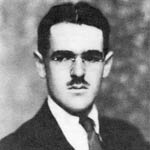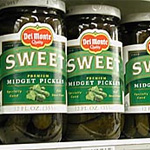
Category Archives: reality
“Best of Me Symphony”
 This humble journal of frivolous screeds placed strongly in the Best of Me Symphony for the week ending August 2nd. Judged by the elusive (yet tireless) Isabella, “Figuring it Out” was cited among a bevy of spirited pieces, which the dark forces at scamper.org will now systematically mine for ideas that we may later repurpose toward our own ends, in accordance with prophecy. In the meantime, a socially-awkward thank you to our favorite flight risk for drawing the homunculus from his damp warren, if only for a moment.
This humble journal of frivolous screeds placed strongly in the Best of Me Symphony for the week ending August 2nd. Judged by the elusive (yet tireless) Isabella, “Figuring it Out” was cited among a bevy of spirited pieces, which the dark forces at scamper.org will now systematically mine for ideas that we may later repurpose toward our own ends, in accordance with prophecy. In the meantime, a socially-awkward thank you to our favorite flight risk for drawing the homunculus from his damp warren, if only for a moment.
Story Time
 In Nicholson Baker’s new novel, “Checkpoint,” the two primary characters discuss ways to assassinate George W. Bush. While the discussion of assassinating a President is illegal, writing about such a topic is a First Amendment right. Of course, the point is moot since the sitting leader of the U.S. is by no means the elected President. If anything such an act should be classified as “murder,” a topic that our secret circle of friends often enjoy discussing as we while away the evening hours. We have not, as yet, read this book, but chances are it’s one of the most important books of our time. I’ll bet it was fun to write in any case, not to mention quick. Any writer of fiction will tell you that there are times when the story just seems to write itself.
In Nicholson Baker’s new novel, “Checkpoint,” the two primary characters discuss ways to assassinate George W. Bush. While the discussion of assassinating a President is illegal, writing about such a topic is a First Amendment right. Of course, the point is moot since the sitting leader of the U.S. is by no means the elected President. If anything such an act should be classified as “murder,” a topic that our secret circle of friends often enjoy discussing as we while away the evening hours. We have not, as yet, read this book, but chances are it’s one of the most important books of our time. I’ll bet it was fun to write in any case, not to mention quick. Any writer of fiction will tell you that there are times when the story just seems to write itself.
Illustration
 “What are you doing?”
“What are you doing?”
“Just flashing my brake lights.” The car on my ass eases off, its headlights retreating in the darkness, but flashes me a warning. No one likes having to abide another’s will.
“Why?”
“To let them know to back off.” I’m keeping an eye on them in the rearview. I wonder if it occurs to them that the discussion I’d been having with my friend has stopped; that now our focus is exclusively on them, like a compass needle planted on North.
“Oh,” says my friend. “Well it’s probably safer to just pull over.”
I shrug in the darkness. “They backed off.”
“Because you never know. It can be dangerous.”
“It’s dangerous for me if I have to stop. Anyway, I didn’t apply my brakes, I just tapped the light.” The car behind us isn’t as close as it was, but it’s creeping up again. Maybe they think fire doesn’t burn twice. Or perhaps they slowed down for a moment so they could get their gun, and now they’re closing to finish the deal.
“Okay,” she says, not liking my tactic. “I just usually pull over.” She’s not wrong, but… I have to admit to getting some satisfaction in not being as passive. Maybe it’s not always good enough to forgive someone for failing to meet my high standards. Maybe a demonstration is worth some risk.
I rationalize. “I mean, for example, if an animal were to run into the road and I had to stop, and then they came along and hit me from behind….”
“Well yeah.”
Two green pinpricks bob out from the high grass on the shoulder, and as we approach, a meaty possum waddles into the road in front of us.
“Oh, whoa!” she exclaims.
I have to mash the brakes and swerve to avoid the animal, and the car behind us comes to within a few feet of my bumper. The possum looks up at us with lethargic eyes, then thoughtfully turns about and retreats.
“Told you,” I say under my breath, less to her than to the driver behind us.
“That was weird,” she says as I straighten us back out and continue down the windy road. “I’ve never seen an animal on this road before.” She’s checking her mirror. “Did they hit it?”
“No,” I say.
After a moment I add, “You know… I can make things happen just by thinking about them.”
“I know,” she says.
Manufacturing Consent
The first thing I saw on the news this morning was a dozen or so Iraqi citizens pulling the head of a toppled Hussein statue around the town square. Free at last? A few moments later the station I was watching replayed the tape from the beginning–as they would many times–and more of the context of this historic event was revealed: an American soldier draping the American flag over the statue’s head (the same flag that flew over the pentagon on 9/11, according the the BBC’s Paul Wood), followed by a massive U.S. military armored vehicle pulling the statue down.
How glorious! It put me in mind of the fall of the Berlin Wall, when U.S. troops hacked away at the wall so that the people of Berlin could dance on them… Oh wait, that didn’t happen. The people of Berlin dismantled that wall.
Maybe there’s a stronger parallel then with the monuments of Lenin, which the U.S. military tore down as part of its drive for regime change in the last days of the USSR. But wait, that didn’t happen either. They were pulled down by, among others, the oppressed people in Ukraine.
So what’s the difference?
Something about seeing that desert-tan military vehicle tugging away at a central symbol of the opposing regime doesn’t sit right with me, and on impulse I turned the channel. It confirmed my suspicion as every channel was showing the same scene, shot from the same angle, shot with the same camera. Apparently this was the scene we were all meant to see. Not a block away, not in the rubble where peoples’ homes had stood, not in the next city over where, even now, the battles rage on.
The Americans are in that square to show the natives how to celebrate their liberation, and to allow us to watch. The Iraqi citizens had gone about it in the wrong way, apparently, having spent the past few days “looting” goods as their city burned. The U.S. soldiers, meanwhile, showed the Iraqis the true path by taking sledgehammers to ceramic portraits of Hussein.
Why are we in Iraq again?
Professor Robert Jay Lifton said that those who seek to control history are doomed to failure. I find that thought incomplete however. I think that those who seek to control history and fail are doomed to failure, but it’s the people who seek to control history and succeed that you have to really watch out for.
Introvert Care
It’s nothing personal, introverts just have special needs. I’ve said it before, that for some sociability is the measure of their happiness, where for me sociability is akin to using my eyes as pincushions. Misanthropic tendencies notwithstanding, these feelings can all be explained quite simply.
Columbia
NASA’s mission page for HSF – STS-107. NASA’s official statement. Two community discussions: MetaFilter + SlashDot.
Joseph Cornell
 “Sometimes the romance of the motion pictures seemed to spill over into Cornell’s own life. In what was perhaps the most poignant of his early attachments, he became interested in a young woman who worked as a cashier at the Bayside Motion Picture Theatre. Day after day she stood in a little booth in front of the theater selling tickets, and Cornell grew accustomed to admiring her from afar.
“Sometimes the romance of the motion pictures seemed to spill over into Cornell’s own life. In what was perhaps the most poignant of his early attachments, he became interested in a young woman who worked as a cashier at the Bayside Motion Picture Theatre. Day after day she stood in a little booth in front of the theater selling tickets, and Cornell grew accustomed to admiring her from afar.
“It gave him pleasure just to walk by and see her encased in the quietude of the glass ticket booth, like a delicate instrument inside a bell jar. Did he ever talk to her beyond asking for a ticket? All that is known is that one afternoon Cornell showed up at the movie house with a bouquet of flowers, which he proceeded to present to her. But when he tried to say hello, he became tongue-tied, so he just hurled the flowers at her. Startled by his gesture as well as by his frightening intensity, the cashier mistook the flowers for a gun and screamed. The theater manager promptly rushed out and wrestled Cornell to the ground, holding him in place until he noticed the bouquet and realized that the suspected robber was merely the most hapless and awkward of suitors.”
from Utopia Parkway: the life and work of Joseph Cornell by Deborah Solomon
Arthur Crew Inman
 David Lynch said, “Crew spent his life writing a diary from 1919 to the time of his eventual suicide in 1963. In that time, he lived confined to a dark room in Boston and, through newspaper ads, hired ‘talkers’ to tell him the stories of their lives. He then wove these histories into his own diary. Young women were a particular fascination. According to his brief bio, he bought them clothes, studied their moods, ‘fondled them,’ and gave them romantic advice. Inman’s edited diaries were published in 1985 by the Harvard University Press in two volumes. That’s where I first heard of him and his strange life’s work.” [read more]
David Lynch said, “Crew spent his life writing a diary from 1919 to the time of his eventual suicide in 1963. In that time, he lived confined to a dark room in Boston and, through newspaper ads, hired ‘talkers’ to tell him the stories of their lives. He then wove these histories into his own diary. Young women were a particular fascination. According to his brief bio, he bought them clothes, studied their moods, ‘fondled them,’ and gave them romantic advice. Inman’s edited diaries were published in 1985 by the Harvard University Press in two volumes. That’s where I first heard of him and his strange life’s work.” [read more]
Midget Pickles?
 Wait. No. Midget pickles? Is that what it said? There’s a whole shelf of Del Monte midget pickles (sweet sweet midget pickles!) at the Safeway, and… no one’s saying anything about it. Where I come from, calling a little person a “midget” is about as savory as calling them–or anyone–a “fuckhead.” It’s not the same species of word, of course–as different as “wop” and “retard,” say. But right along those same derogatory lines, you see. I like pickles, and I like little people–and together I’d call them irresistible–but maybe I’m just out of touch.
Wait. No. Midget pickles? Is that what it said? There’s a whole shelf of Del Monte midget pickles (sweet sweet midget pickles!) at the Safeway, and… no one’s saying anything about it. Where I come from, calling a little person a “midget” is about as savory as calling them–or anyone–a “fuckhead.” It’s not the same species of word, of course–as different as “wop” and “retard,” say. But right along those same derogatory lines, you see. I like pickles, and I like little people–and together I’d call them irresistible–but maybe I’m just out of touch.